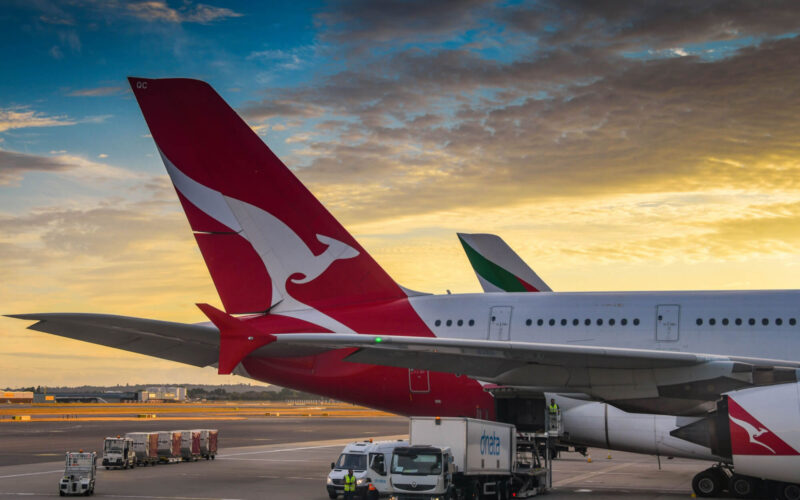After a tricky few months with cancellations and grounded aircraft, Qantas says its operations are back to the standards people expect and its financial situation is getting better.
Like other carriers globally, Qantas suffered with staff shortages during the bounce-back in demand after the COVID-19 pandemic, leading to delays and cancelations. Unit Jetstar had a particularly tough time in September, with six of its 11 widebody aircraft being grounded at the same time for various reasons, ranging from lightning strikes, a bird strike, damage from runway debris and difficulties getting spare parts.
The Jetstar aircraft are now back in service, Qantas revealed in a market update on October 13, 2022, in which it also announced pay increases for staff and said it expected a return to profit in the first half of its current financial year.
For the first six months of its current financial year, Qantas expects underlying profit before tax of between AUD1.2 billion and AUD 1.3 billion ($744-$806 million), the first time it will be back in the black since the pandemic.
“Since August, we’ve seen a big improvement in our operational performance and an acceleration in our financial performance,” Qantas chief executive Alan Joyce said in the statement. “It’s been a really challenging time for the national carrier but today’s announcement shows how far we’ve come.”
The airline said it is investing a further AUD200 million for the remainder of FY23 to improve the reliability of operations, such as by rostering additional crew, and training of new recruits. Qantas said it was also being more conservative with regards to scheduling, meaning 20% of the group’s flying capacity will be left in reserve and can be called upon to reduce delays and cancellations.
“It’s clear that maintaining our pre-COVID service levels requires a lot more operational buffer than it used to, especially when you consider the sick leave spikes and supply chain delays that the whole industry is dealing with,” Joyce explained. “That means having more crew and more aircraft on standby and adjusting our flying schedule to help make that possible, until we’re confident that extra support is no longer needed.”
In good news for staff, Qantas said it is changing a pay policy affecting around 20,000 people and implementing a pay increase after a two-year pay freeze.
Last week, Qantas CEO Joyce was quoted as saying that he was looking for a progress report from Airbus on the status of airline deliveries, notably the A350s ordered for Project Sunrise for non-stop flights between Sydney and London and New York.
“I think every airline would be after certainty on the time-frames, if they come a month later it doesn’t make much difference, if it’s six months or a year, that can make a big difference,” Joyce told Bloomberg in an interview.

